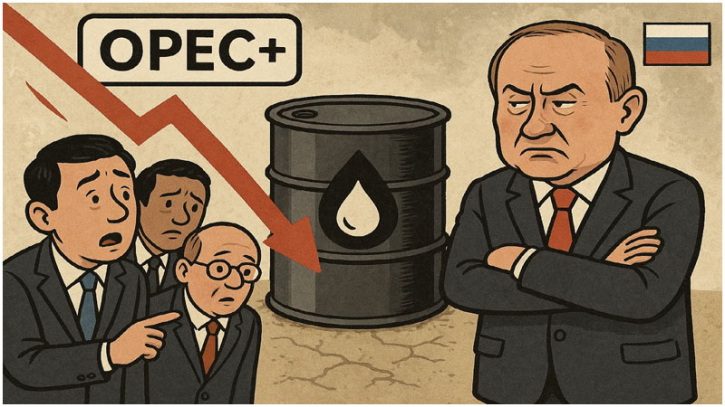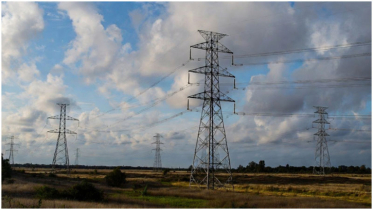OPEC+ weighs oil output hike as prices slide, Russia resists

Saudi Arabia, Russia, and six other major oil producers within the OPEC+ alliance are expected to agree on raising crude oil production when they meet virtually on Sunday, though analysts remain split over the scale of the potential hike.
The meeting of the so-called “Voluntary Eight” (V8) — comprising Saudi Arabia, Russia, Iraq, the UAE, Kuwait, Kazakhstan, Algeria, and Oman — comes as oil prices face weekly losses and speculation mounts that the group could boost production by as much as 500,000 barrels per day (bpd).
The Organization of the Petroleum Exporting Countries (OPEC), angered by “inaccurate and misleading” media reports, urged outlets earlier this week to avoid fueling market speculation.
Analysts had initially anticipated a modest hike of around 137,000 bpd for November, mirroring October’s increase. However, Commerzbank’s Barbara Lambrecht warned that OPEC+ has a track record of surprising markets with larger and faster adjustments.
Since April, the V8 group has already increased production by 2.5 million bpd, reversing earlier output cuts aimed at propping up prices. The alliance’s recent strategy shift seeks to regain market share as output from the US, Brazil, Canada, Guyana, and Argentina reaches record highs, according to the International Energy Agency (IEA).
While the IEA expects global crude demand growth to hold steady at around 700,000 bpd annually through 2026, OPEC’s outlook remains more optimistic, projecting growth of 1.3 to 1.4 million bpd over the same period.
Fears of oversupply have already rattled the market. Brent crude — the global benchmark — fell below $65 per barrel this week, down roughly eight percent in just seven days.
Russia, OPEC+’s second-largest producer, may resist a major production increase. Analysts warn that Moscow, constrained by Western sanctions and relying heavily on oil revenues to finance its war in Ukraine, risks further price declines if supply rises too quickly.
Russia’s current output stands at about 9.25 million bpd, with limited capacity to exceed 9.45 million bpd, well below pre-war levels. Ukrainian drone attacks on Russian refineries have intensified since August, forcing Moscow to export more crude due to reduced domestic processing capacity.
Analysts say this leaves Russia in a vulnerable position — dependent on strong oil prices abroad even as OPEC+ weighs ramping up production to protect market share.
.png)




